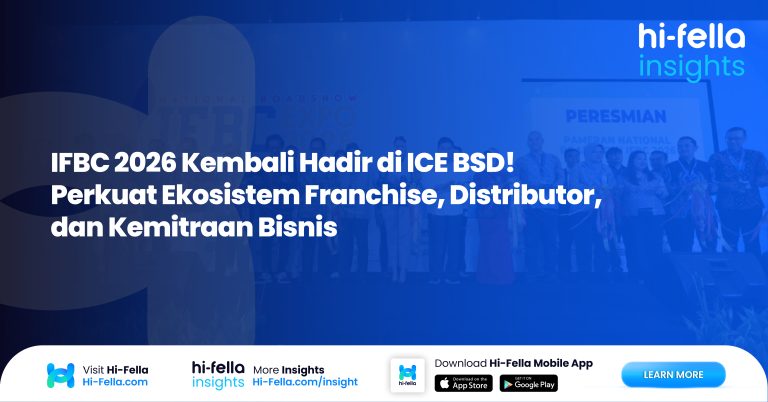Table of Contents
In today’s digital age, the right tools can significantly amplify a business’s operations. Software for business management designed for game-changers, helping entities across industries optimize their processes, enhance productivity, and make better-informed decisions.
But what exactly are these software for business management solutions, and how do they transform business operations and innovations? Let’s delve deeper into this article!
Software for Business Management: Grasping its Crucial Role
Source: Pexels
The software for business management is essential. It helps businesses work better, faster, and smarter. From small startups to big companies, everyone uses these tools to get ahead. Let’s look at how they change the way with a crucial roles:
- Centralized Inventory Management
One of the biggest challenges businesses face, especially in the retail and manufacturing sectors, is managing inventory.
Using software for business management can keep track of products, raw materials, and other essential items in real-time, reducing wastage and ensuring timely restocking.
According to Statista, effective inventory management through software can reduce carrying costs by up to 25%.
- Enhancing Customer Relations with CRM
Customer Relationship Management (CRM) software doesn’t just store customer data. It offers insights into customer behavior, tracks interactions, and helps tailor marketing strategies to individual preferences.
By utilizing CRM software, businesses can foster stronger relationships with their customers, leading to increased loyalty and sales. A report by Forbes showed that CRM software could boost sales conversion rates by up to 300%.
- Streamlining Tasks with Project Management Tools
Every business project, whether small or expansive, demands meticulous management. With project management software, businesses can allocate resources efficiently, track progress, set milestones, and ensure timely delivery.
Platforms like Trello and Asana have been pivotal in promoting collaboration and ensuring project deadlines are met.
Software for Business Management: Exploring Its Essential Categories
Source: Pexels
In the business world, many tools help things run smoothly. One of the most important is software made just for managing a business. Let’s take a closer look at the main types of software modern businesses use.
- The All-encompassing ERP Systems
Enterprise Resource Planning (ERP) systems act as the backbone for large businesses. These comprehensive software solutions integrate various business processes into a single unified system, promoting data accuracy and organizational efficiency.
Notably, Oracle and SAP are leaders in this space, offering businesses a bird’s eye view of their operations.
- Building Stronger Teams with HRMS
Human Resource Management Systems (HRMS) streamline all HR activities – from recruitment and onboarding to payroll processing and performance appraisals.
By automating these processes, companies can ensure compliance, reduce errors, and boost employee morale. Companies like Workday are at the forefront, providing intuitive HR solutions for modern businesses.
Software for Business Management: A Glimpse into the Future
Source: Pexels
Businesses keep changing, and so do the tools that help them. Let’s peek into the future of business management software.
- Prioritizing Data Security
As businesses migrate to digital platforms, the risk of cyber threats looms large. Ensuring robust security protocols and regular software updates is crucial to protect sensitive business data.
Organizations are now investing more in cybersecurity measures, with platforms like Symantec offering specialized solutions.
- Ensuring Scalability for Growing Businesses
The ideal business management software should grow with the company. Scalability ensures that as the business expands, the software can handle the increased workload without compromising on performance.
For businesses eyeing the future, scalability isn’t just an added feature; it’s a necessity. The ideal software for business management is one that not only meets the company’s current needs but is also poised to cater to its future demands, ensuring that the path to growth is always smooth and unhindered.
Investing in scalable solutions today means paving the way for seamless operations tomorrow.
- AI and Automation: The New Frontier
Artificial Intelligence (AI) and automation are no longer buzzwords – they’re transforming the business landscape.
Modern business software is leveraging these technologies to offer predictive insights, automate repetitive tasks, and provide personalized customer experiences.
A Gartner study predicts that by 2025, AI will power 80% of all customer interactions in the business realm.
In Conclusion
The right software for business management can be the difference between a company that merely survives and one that thrives. It streamlines operations, facilitates informed decision-making, and ensures businesses stay ahead of the curve.
For those keen on exploring the best software solutions tailored to their business needs, Hi-Fella is your next stop.
Why navigate the complexities of global trade alone? With our platform that seamlessly connects suppliers, buyers, and consumers, we simplify and streamline your trading processes. Leverage your business with Hi-Fella!








